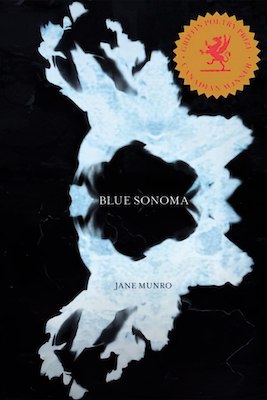When I was very sick, using the bathroom 17 times a day and buckled over with abdominal pain, I never would have imagined writing a poem about my illness—much less an entire book.
As a teenager I was so embarrassed and afraid of my body that I couldn’t even speak to my closest friends about my Crohn’s disease. I am reminded of this isolation nearly every day as a psychiatrist when I work with patients who struggle to share their experiences of psychosis, suicidality, or dementia with their loved ones. I see the same hushed phenomenon around patients who are approaching death; sometimes even when patients are ready to speak about their imminent passing, their family is unable to receive it. Our suffering is only doubled by this silence.
In a world designed for healthy bodies and brains, writing my first book of poems felt like a subversive act. Radium Girl explores my experiences surviving both medical illness as a young patient with Crohn’s disease and medical training as a physician. This reading list features other poetry collections that confront difficult-to-discuss medical diagnoses: mental illness, blood-related diseases, and the end of life. I wish I could have shared all of these books with my teenage self.
Black Aperture by Matt Rasmussen
The poems in Black Aperture are as precise and devastating as the bullets that careen through this book into trees, deer, and ultimately into the head of Rasmussen’s brother, who kills himself when the poet is a teenager. Often language is used to obscure suicide, as in a young person’s obituary who “died unexpectedly.” In this book the suicide of Rasmussen’s brother is a movie he cannot stop replaying, in slow motion and then in fast forward. In “Reverse Suicide” Rasmussen even imagines the event unfolding backwards: “each snowflake stirs before lifting into the sky as I/learn you won’t be dead.” Black Aperture is an accessible collection with short poems in plain language. But its simplicity is shot through with dark humor and surreal metaphors that feel emotionally accurate to the grief, shame, and anger of a loved one left behind.
Big–Eyed Afraid by Erica Dawson
Reading Erica Dawson’s first book of poems is like riding a roller coaster in the dark: we can enjoy the terrifying up-and-down journey knowing we are in good hands and in no real danger. In Big-Eyed Afraid Dawson’s identities as a black woman, daughter, and writer complicate her experiences of bipolar disorder and obsessive-compulsive disorder. Dawson’s mania is mirrored in her frenetic, sensual language; her OCD in the poems’ exacting, repetitive shapes; and her depression in her near-constant ruminations about her own death. “The voice inside my head is talking smack,” she writes in “Bees in the Attic,” before wandering her childhood home, considering the various places she could end her life, but doesn’t.

Blue Sonoma by Jane Munro
“He is not a person I knew in life,” writes Jane Munro, describing a man from a dream but also her husband, passing deeper and deeper into Alzheimer’s dementia. In this meditative collection Munro walks the difficult tightrope of honoring and mourning her husband, Robert, as his memory becomes “a sieve.” His illness washes away his understanding of time, his ability to use a phone, and his license to drive—a loss referenced in the book’s title and eponymous first poem, in which Robert crashes his blue Sonoma truck into a guard rail. For all this loss, Munro stuns us with moments of natural beauty and unsentimental intimacy, urging us to remember: “surely, surely, he wasn’t empty of himself. Not yet.”
We Mad Climb Shaky Ladders by Pamela Spiro Wagner
Psychosis remains a highly stigmatized illness in part because there are so few stories of people who have experienced it. Paranoia, hallucinations, and disorganized thoughts can destroy our ability to tell a coherent narrative; luckily Pamela Spiro Wagner has given us a window into schizophrenia in We Mad Climb Shaky Ladders. In startlingly honest and clear language Wagner describes paranoia overtaking her as she attempts to grocery shop or play croquet: “I knew then all the sharp vowels of fear.” Each of Wagner’s poems are placed in conversation with commentary by her longtime psychiatrist, with room for Wagner to respond with even further insight and humor (“this poem had nothing whatsoever to do with my own mother”).

The Hemophiliac’s Motorcycle by Tom Andrews
Tom Andrews’ life was cut short by complications related to the clotting disorder hemophilia, but not before he managed to publish this brilliant book of poems, race motorcross, and earn a place in the Guinness World Records for clapping for 14 hours and 31 minutes straight—an experience he details in his long poem “Codeine Diary.” Even when Andrews is not speaking directly to his hemophilia, his metaphors do: “The river twisted like a wrist in its socket” and “sparrows clot the fence posts.” The inevitability of another fall, another bleed, another long hospital visit casts a long shadow over Andrew’s collection. Still, he wonders about other possibilities for his life: “Surprise me, Lord,” he writes, “as a seed/surprises itself.”
Deluge by Leila Chatti
“I bled,” Leila Chatti writes, and “God didn’t want to hear about it.” Neither apparently did Chatti’s doctors, who insist on clarifying her symptoms with her boyfriend before agreeing to admit her to the hospital for heavy uterine bleeding that has gone on for hours. As the book unfolds, Chatti chronologically details the drudgery of clinic waiting rooms, painful gynecological exams, and eventually the surgery that provides her a diagnosis. The individual poems in Deluge are beautiful and smart. But it is Chatti’s exploration of the expectations of women in both medical and religious settings (Chatti is Tunisian American, raised in a Muslim-Catholic household) that makes this book so dazzlingly defiant.
The Tradition by Jericho Brown
It would be easy to skim the poems in Jericho Brown’s The Tradition and not identify the current of illness running underneath. Brown writes powerfully about the trauma of school shootings, police killings, sexual assault, and living in a Black body. But he waits to speak directly to the trauma of his HIV diagnosis until the latter third of the collection. When Brown embodies the voice of HIV in “The Virus,” he becomes not only the illness attempting to ravage his body but every entity trying to cancel his existence as gay black man. With vulnerability (“Now I worry/No one will ever love me”) and humor (“my man swears his HIV is better than mine”), Brown sets forth a new tradition of survival despite the ways in which our bodies attempt to harm us.
Impossible Bottle by Claudia Emerson
Dedicated to her beloved husband and the doctors who cared for her, Claudia Emerson’s posthumous collection of poems feels like a gift from the beyond. Written as Emerson is dying of cancer, Impossible Bottle is grounded in the unbearable grief of the present. But Emerson also turns backwards toward her childhood and ahead toward her death, describing with great generosity and imagination a group of medical students dissecting her body in an anatomy lab. In the beautiful series “Infusion Suite,” Emerson faces an endless series of chemotherapy appointments; distracting herself with a round of Scrabble, she surveys the few options that remain both on the gameboard and in her life: “all my words small/but costly, and my accounting of them perfect.”
Still Life by Jay Hopler
The day Jay Hopler was diagnosed with metastatic prostate cancer he began writing the poems in Still Life; he died just one week after the book’s publication. In this darkly comic collection, Hopler rehearses his own death. He imagines his students write an obituary in which his name is increasingly misspelled. He bats around a series of titles for a possible memoir (“Nothing Rhymes with Dead: The Jay Hopler Story”). But moments of elegance and anguish break through his self-depreciation, as in the short poem “The Vacation Over”: “see from the train/who remains on the beach playing, bathing in the waves;/is this how it’s going to be/is this how it’s going to be/to leave this life?”
The post 9 Poetry Collections About Illnesses That We Don’t Talk About appeared first on Electric Literature.
Source : 9 Poetry Collections About Illnesses That We Don’t Talk About














